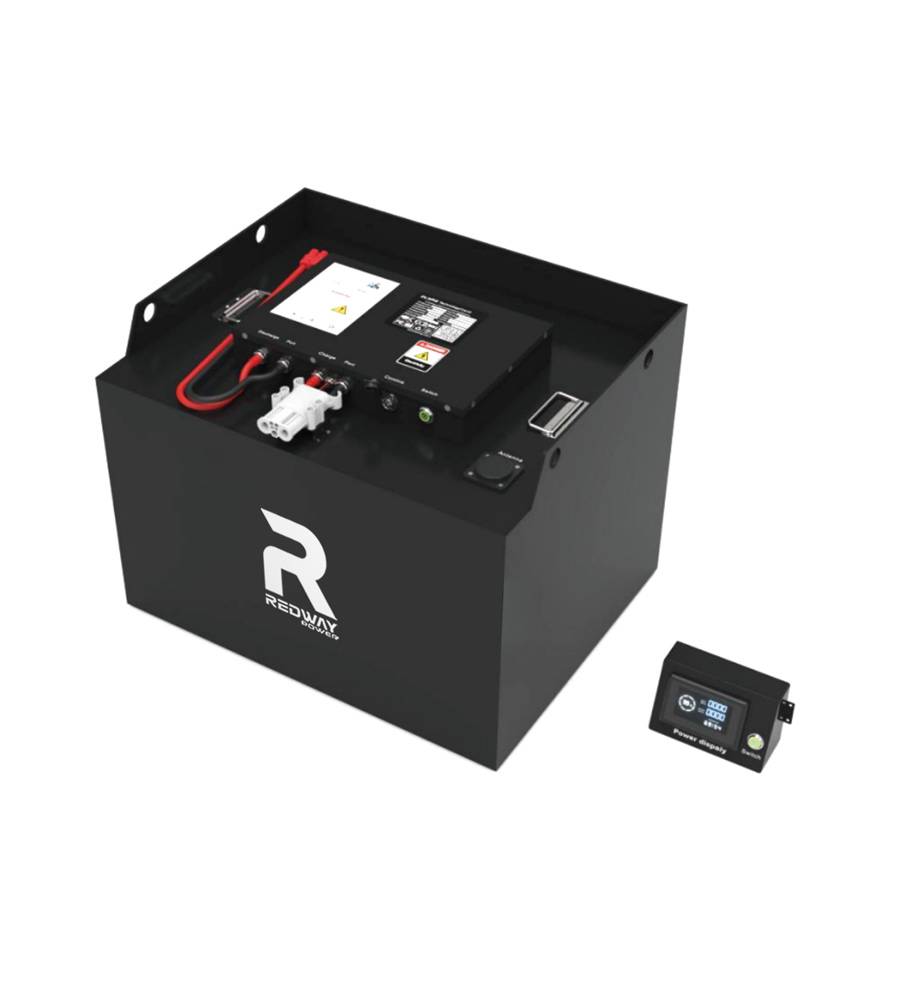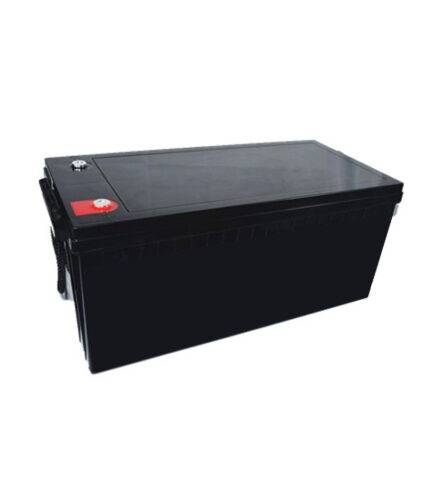- Forklift Lithium Battery
-
48V
- 48V 210Ah
- 48V 300Ah
- 48V 420Ah (949 x 349 x 569 mm)
- 48V 420Ah (950 x 421 x 450 mm)
- 48V 456Ah
- 48V 460Ah (830 x 630 x 590 mm)
- 48V 460Ah (950 x 421 x 450 mm)
- 48V 460Ah (800 x 630 x 600 mm)
- 48V 460Ah (820 x 660 x 470 mm)
- 48V 500Ah
- 48V 560Ah (810 x 630 x 600 mm)
- 48V 560Ah (950 x 592 x 450 mm)
- 48V 600Ah
- 48V 630Ah
-
48V
- Lithium Golf Cart Battery
- 12V Lithium Battery
12V 150Ah Lithium RV Battery
Bluetooth App | BCI Group 31
LiFePO4 Lithium
Discharge Temperature -20°C ~ 65°C
Fast Charger 14.6V 50A
Solar MPPT Charging - 24V Lithium Battery
- 36V Lithium Battery
- 48V Lithium Battery
-
48V LiFePO4 Battery
- 48V 50Ah
- 48V 50Ah (for Golf Carts)
- 48V 60Ah (8D)
- 48V 100Ah (8D)
- 48V 100Ah
- 48V 100Ah (Discharge 100A for Golf Carts)
- 48V 100Ah (Discharge 150A for Golf Carts)
- 48V 100Ah (Discharge 200A for Golf Carts)
- 48V 150Ah (for Golf Carts)
- 48V 160Ah (Discharge 100A for Golf Carts)
- 48V 160Ah (Discharge 160A for Golf Carts)
-
48V LiFePO4 Battery
- 60V Lithium Battery
-
60V LiFePO4 Battery
- 60V 20Ah
- 60V 30Ah
- 60V 50Ah
- 60V 50Ah (Small Size / Side Terminal)
- 60V 100Ah (for Electric Motocycle, Electric Scooter, LSV, AGV)
- 60V 100Ah (for Forklift, AGV, Electric Scooter, Sweeper)
- 60V 150Ah (E-Motocycle / E-Scooter / E-Tricycle / Tour LSV)
- 60V 200Ah (for Forklift, AGV, Electric Scooter, Sweeper)
-
60V LiFePO4 Battery
- 72V~96V Lithium Battery
- Rack-mounted Lithium Battery
- E-Bike Battery
- All-in-One Home-ESS
- Wall-mount Battery ESS
-
Home-ESS Lithium Battery PowerWall
- 24V 100Ah 2.4kWh PW24100-S PowerWall
- 48V 50Ah 2.4kWh PW4850-S PowerWall
- 48V 50Ah 2.56kWh PW5150-S PowerWall
- 48V 100Ah 5.12kWh PW51100-F PowerWall (IP65)
- 48V 100Ah 5.12kWh PW51100-S PowerWall
- 48V 100Ah 5.12kWh PW51100-H PowerWall
- 48V 200Ah 10kWh PW51200-H PowerWall
- 48V 300Ah 15kWh PW51300-H PowerWall
PowerWall 51.2V 100Ah LiFePO4 Lithium Battery
Highly popular in Asia and Eastern Europe.
CE Certification | Home-ESS -
Home-ESS Lithium Battery PowerWall
- Portable Power Stations
51.2V 48V 550Ah 560Ah Forklift Lithium Battery
• MOQ: 10
• Delivery: 25 Days
• Customizable / OEM / ODM: Yes
• Delivery Terms: FOB, EXW, CIF
• Payment: T/T, L/C, PayPal
• Sea / Air / Land Shipment: 10FT, 20FT, 40FT, 60FT
Description
Introducing the 51.2V 560Ah Forklift Lithium Battery, a high-performance energy solution designed for OEM, ODM, and wholesale buyers. This lithium iron phosphate (LiFePO4) battery delivers exceptional efficiency and reliability, making it ideal for heavy-duty material handling applications.

Key Features
- Impressive Energy Capacity: With a nominal capacity of 560Ah and an energy output of 28.67kWh, this battery ensures reliable power for various forklift operations, maximizing productivity throughout shifts.
- Robust Construction: Designed with a metal shell and rated IP65, it provides superior protection against dust and water, ensuring durability in challenging environments.
- Advanced Battery Management System: The intelligent BMS continuously monitors critical parameters, safeguarding against overcharging, over-discharging, and short circuits for enhanced safety and performance.
- Long Cycle Life: Engineered to last over 4000 cycles at 80% depth of discharge (DOD), this battery significantly reduces replacement costs compared to traditional lead-acid batteries.
- Flexible Shipping Options: Available for delivery via FOB, EXW, or CIF, with various shipment methods including sea, air, or land.
Product Description
The 51.2V 560Ah Forklift Lithium Battery is engineered to provide dependable power for modern material handling operations. With a nominal voltage of 51.2V, this lithium iron phosphate (LiFePO4) battery ensures exceptional energy density and efficiency. Its dimensions of 810 x 630 x 600 mm and weight of approximately 352 kg make it suitable for various forklift models while providing robust performance.
This battery operates effectively in a wide temperature range from -20°C to 60°C, making it suitable for both indoor and outdoor applications. The natural cooling system enhances reliability by maintaining optimal performance without additional cooling requirements.
With a maximum charge current of 250A and a peak discharge current of 1000A, this battery supports high-demand applications while prioritizing safety through its advanced Battery Management System (BMS). The BMS protects against critical issues such as overcharging and overheating, ensuring safe operation throughout its lifespan.
Investing in the 51.2V 560Ah Forklift Lithium Battery not only provides a reliable power source but also contributes to sustainability efforts with its eco-friendly design. The long lifespan minimizes the need for frequent replacements, ultimately lowering your total cost of ownership.
Choose our 51.2V 560Ah Forklift Lithium Battery for an efficient, powerful, and environmentally friendly solution tailored to your material handling needs.
Specifications
| Specifications | |
|---|---|
| Lithium Cell Type | LiFePO4 |
| Nominal Voltage | 51.2V |
| Nominal Capacity | 560Ah |
| Nominal Energy | 28.67kWh |
| Dimensions (L*W*H) | 810 x 630 x 600 mm |
| Weight | ~352 kg |
| Max Charge Current | 250A (Continuous) |
| Max Discharge Current | 500A (Continuous) |
| Peak Discharge Current | 1000A (3s) |
| Operating Voltage Range | 40V–58.4V |
| IP Rating | IP65 |
| Cooling | Natural Cooling |
| Cycle Life | >4000 cycles (DOD 80%) |
| Charge Temperature | 0℃ – 55℃ |
| Discharge Temperature | -20℃ – 60℃ |
| Battery Shell | Metal |
| Communication | RS485, CAN-bus, 4G |
| Warranty | 5 years |
| BMS Protection | Advanced smart BMS monitoring SOC, system voltage, current, cell voltage, cell temperature, overcharge, overdischarge, overcurrent, overvoltage, low-voltage, overtemperature, short circuit, etc. |
Applications and FAQs
What is the best battery for a forklift?
The best battery for a forklift is typically a lithium-ion battery due to its longer lifespan, faster charging times, and lower maintenance compared to traditional lead-acid batteries. Lithium batteries also provide consistent power and efficiency, making them ideal for high-demand applications in warehouses and manufacturing.
What is the difference between Grade A and Grade B lithium batteries?
Grade A lithium batteries are new or like-new with minimal wear, offering optimal performance and longevity. In contrast, Grade B batteries may have some signs of use, reduced capacity, and shorter lifespans. Choosing Grade A ensures better reliability and efficiency for critical applications.
How to revive a dead forklift battery?
To revive a dead forklift battery, first, check the water levels and add distilled water if necessary. Then, use a battery charger designed for your battery type to slowly charge it. If the battery remains unresponsive, professional servicing may be required to assess potential damage.
What is the difference between 48V and 51.2V lithium batteries?
The primary difference between 48V and 51.2V lithium batteries lies in their voltage output. The 51.2V battery provides slightly higher voltage, which can enhance performance in certain applications. Additionally, the 51.2V system may offer better compatibility with specific inverter systems designed for higher voltage input.
How long do lithium forklift batteries last?
Lithium forklift batteries typically last between 5 to 10 years, depending on usage patterns, charging habits, and maintenance practices. Their lifespan can be extended with proper care, including regular monitoring of charge cycles and avoiding deep discharges.
How much does it cost to replace a forklift battery?
Replacing a forklift battery can cost anywhere from $3,000 to $10,000, depending on the type (lead-acid or lithium-ion) and capacity required. Lithium-ion batteries tend to be more expensive initially but offer savings over time due to lower maintenance costs and longer lifespans.
Can you overcharge a forklift battery?
Yes, you can overcharge a forklift battery, particularly lead-acid types. Overcharging can lead to overheating, reduced lifespan, and potential damage. It's crucial to use appropriate chargers with built-in protection features to prevent overcharging.
What happens to old forklift batteries?
Old forklift batteries are typically recycled or disposed of according to environmental regulations. Lead-acid batteries can be recycled for their lead and sulfuric acid components, while lithium-ion batteries require specialized recycling processes to recover valuable materials like lithium and cobalt.
Which is better, lead-acid battery or lithium-ion battery in forklift?
Lithium-ion batteries are generally considered better than lead-acid batteries for forklifts due to their longer lifespan, faster charging times, lighter weight, and reduced maintenance needs. They also provide consistent power output throughout their discharge cycle.
Why is my forklift battery draining so fast?
A forklift battery may drain quickly due to several factors: excessive load on the battery, insufficient charging cycles, age-related degradation, or faulty charging equipment. Regular maintenance and monitoring can help identify issues that contribute to rapid drainage.

























